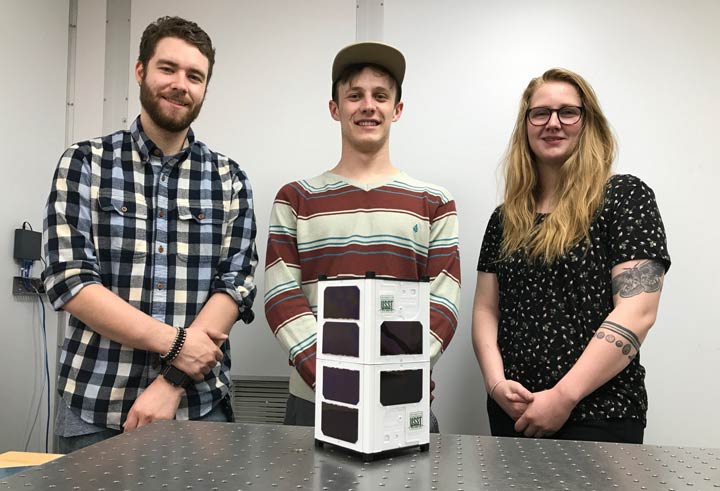A University of Saskatchewan (U of S) led team has been chosen by the Canadian Space Agency to prepare a research satellite for launch by rocket in 2021.

The announcement was made Friday via teleconference at a national event in Winnipeg that involved members of 15 successful teams of a national competition.
Once tested, the U of S Space Design Team will launch the satellite to the International Space Station, where it will be deployed.
The satellite, roughly the size of two Rubik’s cubes, will be used to study how potentially useful construction materials — ranging from ceramics to fabrics — degrade in space.
U of S physics student Simone Hagey, who is one of three student managers for the project, is excited to have the opportunity to access space as an undergrad.

Get breaking National news
“We’ll have those materials exposed to the space environment. They’ll be experiencing huge temperature changes, cosmic rays, some of the ionosphere,” Hagey said.
“We’re determining how materials degrade over time, different properties and such. That’s important because before you send things up into space, you want to know whether or not the materials are going to survive it.”
A multi-disciplinary team is anticipated to involve over 40 U of S students from engineering, computer science, physics and business, as well as several students from Saskatchewan Polytechnic.
The team was awarded $200,000 in the CubeSat competition. The Canadian Space Agency will also cover costs associated with the space launch.
However, the team needs to raise an additional $200,000 to match the funds. To make a donation to the project, visit the U of S online.
U of S officials said it will be Saskatchewan’s first student-designed satellite mission.
Founded in 2005, the team has won several international awards for innovations that include developing rovers and rocket payloads.



Comments